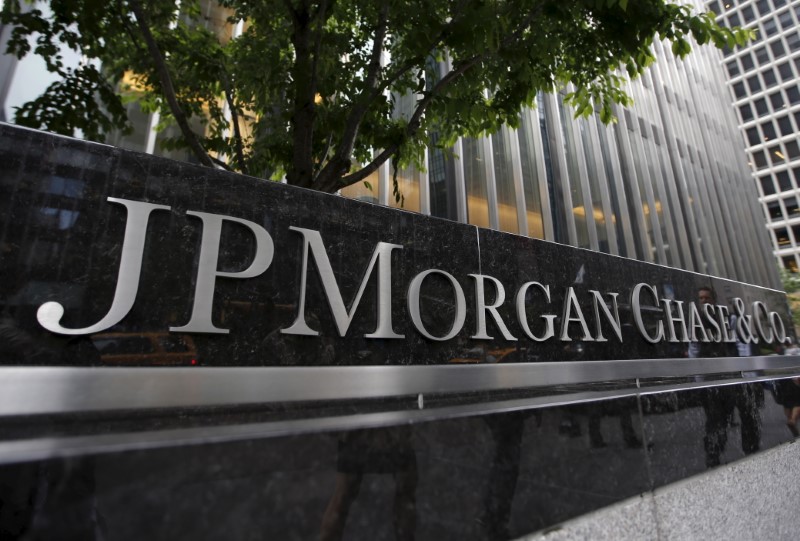JAKARTA (Reuters) - Indonesia has penalised JPMorgan Chase & Co after the investment bank's research arm recommended a smaller exposure to the country's sovereign bonds, a senior finance ministry official said on Tuesday.
"After we did a comprehensive review, we said no need to use JPMorgan's services as a primary (bond) dealer and a perception bank," Suahasil Nazara, the head of the ministry's fiscal policy office, told Reuters.
A 2006 government decree says a perception bank is one appointed by the finance minister to receive transfers of state revenue not related to imports, including tax, onshore excise and non-tax revenue.
Nazara said the penalty on JPMorgan (N:JPM) has already taken effect.
The decision was taken after JPMorgan issued a note in November downgrading its rating for Indonesian bonds to "underweight" from "overweight", he said.
The official said the bank's analysis "did not make sense" because it recommended a "neutral" position for Brazil, a better rating than for Indonesia, despite what he said was a more stable political situation in the Southeast Asian nation.
"We have asked them to clarify their assessment. They've explained to us, but we found their argument not credible. It's not that we think we're so great, but we look at ourselves and we look at other countries' economies," Nazara said.
"Our mindset is, if you're doing business here in Indonesia, the spirit is to maintain stability. Don't create unnecessary volatility to create business," he added.
BUSINESS AS USUAL
A JPMorgan spokeswoman said on Tuesday that it continued to operate its business in Indonesia as usual. "The impact on our clients is minimal and we continue to work with the Ministry of Finance to resolve the matter," she said in an email.
In a note dated Nov. 13, JPMorgan downgraded emerging markets including Indonesia and Brazil, citing higher risk premiums for their credit default swaps after Donald Trump won the U.S. presidential election.
"Bond markets are starting to price in faster growth and higher deficit," the bank wrote, adding that the "spike in volatility" may stop or reverse flows into fixed-income assets in emerging markets.
However, the bank said in the note that the downgrade on Indonesia and Brazil was a "tactical" response to Trump's victory. Both economies are improving, with lower policy rates likely to support valuations for 2017, it added.
Indonesia's 10-year credit default swap
Trump signalled more protective U.S. trade policies, raising concerns about the impact on developing markets.
Analysts have said that Indonesia's economy should be supported by domestic consumption, which makes up more than half of gross domestic product.
But the relatively high foreign ownership of government bonds and Indonesia's lack of depth of financial markets make it vulnerable to capital reversals, they say.

In 2015, then-Finance Minister Bambang Brodjonegoro said he had given JPMorgan a sanction that "will be disturbing for them and make them uncomfortable" after it recommended an "underweight" position on Indonesian bonds. He didn't say what the sanction was. (http://reut.rs/2is0VKj)